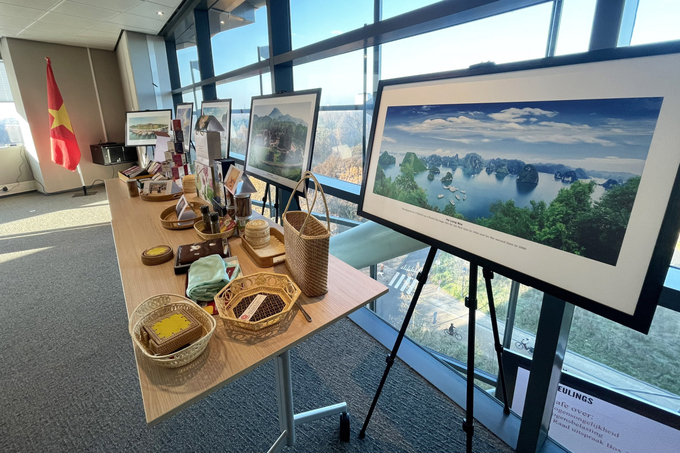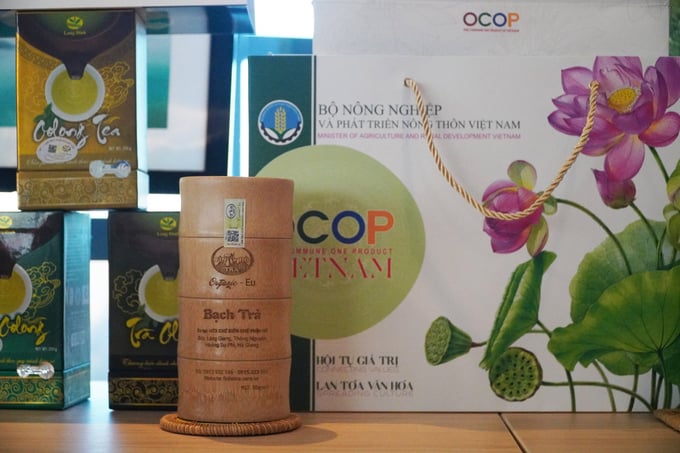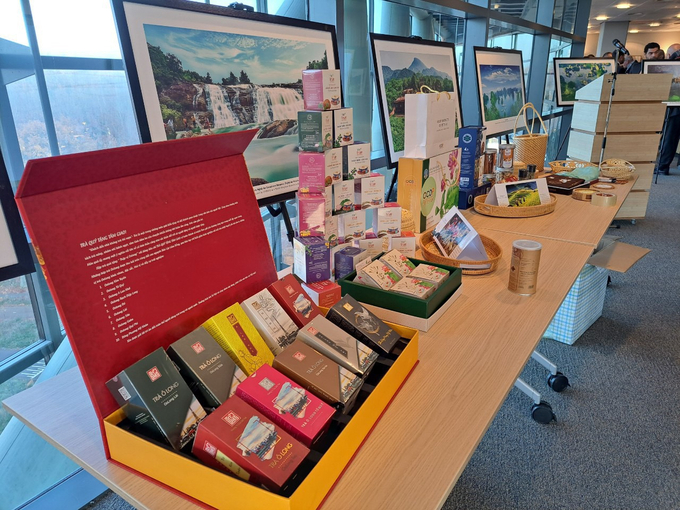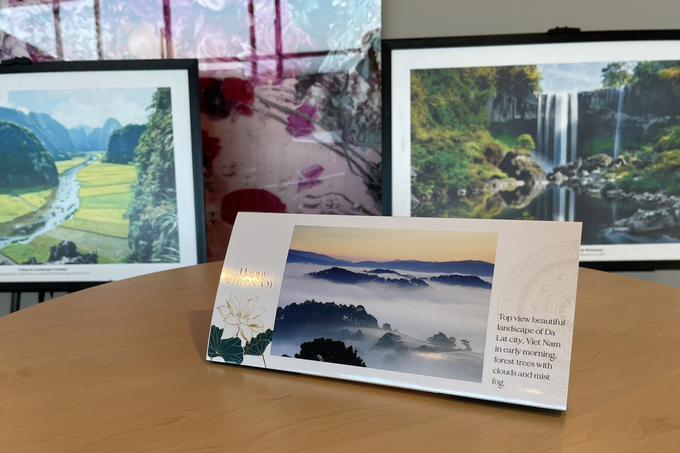May 16, 2025 | 10:36 GMT +7
May 16, 2025 | 10:36 GMT +7
Hotline: 0913.378.918
May 16, 2025 | 10:36 GMT +7
Hotline: 0913.378.918

Vietnam's OCOP products on display. Photo: Trung Quan.
The promotion of Vietnam's OCOP products at the Forum was intended to introduce the image of Vietnam's agriculture - farmers - rural areas to investors and businesses from European countries. On the other hand, these OCOP products represent different Vietnamese regions, with premium quality, diverse designs, and appealing packaging.
With the theme of "Convergence of Values - Promotion of Culture", Vietnam's OCOP products introduced at the Forum are not only made in rural areas with the enthusiasm and pride of the farmers, but they are also pursuing the mission of connecting and sharing Vietnamese cultural values.
Each Vietnam's OCOP product is considered an "ambassador" for a region within the country, introducing vivid stories about Vietnam's agriculture and rural areas.

Vietnam's OCOP tea products on display at the Forum. Photo: Trung Quan.
Minister of Agriculture and Rural Development Le Minh Hoan said that the "OCOP - One commune and one product" program is a solution to economic development. The program has improved incomes for rural farmers from agricultural products, handicrafts, cultural traditions, and local landscapes that are undeveloped regional potentials and advantages.

Vietnam's OCOP tea products on display at the Forum. Photo: Trung Quan.
Moreover, the OCOP program is an indicator of Vietnam's transition from "agricultural production" to "agricultural economy", with multiple values integrated on the same well-maintained product.
Based on the suggestions of the leaders of the Party and the Government, the selected key Vietnam's OCOP product set will become an official diplomatic gifts. Vietnam's OCOP products are the results of the talented hands and creative minds that gave life to folklore, local identity through seemingly ordinary resources; these products have high values, becoming a symbol for the pride of the Vietnamese people, communities, and localities.

The beautiful landscapes of Vietnam are introduced to international partners. Photo: Trung Quan.
Vietnam's OCOP products are not created by just a single person, but they are the results of the hardworking many. The OCOP products are the combination of raw material supply, processing, production, designing, packaging, branding and so on. The production and processing of OCOP products require multiple participants and households.
Each commune, ward, and village has its own unique product. Each product is imbued with the efforts of many people, of a community, of a village. This is also the sentiment that Vietnamese people wish to send through each OCOP product.
Translated by Nguyen Hai Long
![Multi-channel, multi-directional Vietnamese agricultural markets: [7] Deep processing makes global reach easy](https://t.ex-cdn.com/nongnghiepmoitruong.vn/608w/files/huytd/2025/05/16/2946-che-bien-sau-chia-khoa-vang-nang-tam-nong-san-viet-tren-ban-do-the-gioi-080603_110-093858.jpg)
(VAN) The application of deep processing technology is helping Vietnamese agricultural products enhance their value, create competitive advantages, and open doors to conquer global consumers.
![Multi-channel, multi-directional Vietnamese agricultural markets: [6] Agri products go online](https://t.ex-cdn.com/nongnghiepmoitruong.vn/608w/files/content/2024/12/10/1-113313_954.jpg)
(VAN) Bringing agri products onto e-commerce platforms is an effective way to build a brand that many businesses, cooperatives, and agricultural production households are doing.

(VAN) Veterinary training should focus on quality, not just quantity. Veterinarians also need more options to pursue specialized training.

(VAN) The veterinary industry needs to be viewed objectively and further invested in to properly demonstrate its role and importance in the new context.

(VAN) The number of veterinarians graduating each year is not enough to meet actual needs, hence a difficult problem for the growing livestock industry.

(VAN) The strategic partnership between Cambodia, the Philippines, Vietnam, and CGIAR ensures that innovative solutions effectively address national priorities for food system development.

(VAN) This was affirmed by the UK Minister of State at the Department for Environment, Food and Rural Affairs during a working session with Deputy Minister Tran Thanh Nam on May 13.